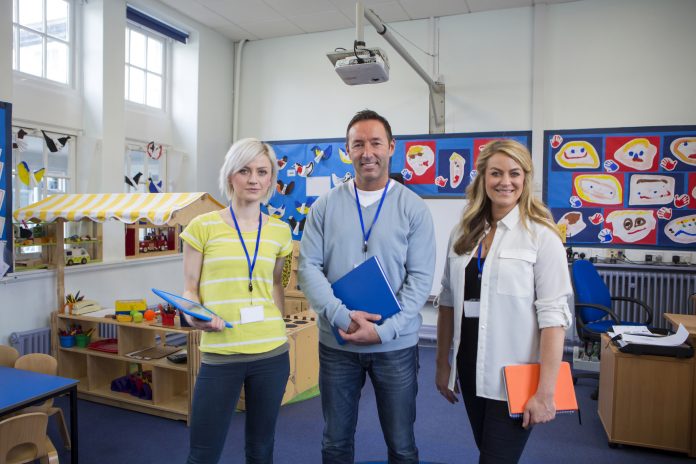The Education Secretary has accepted all the recommendations from the independent School Teachers’ Review Body, to raise the upper and lower boundaries of all pay ranges by 2.75%
Schools will continue to determine how staff are paid, but the increase in pay will be supported by an additional £105 million to be paid through the teachers’ pay grant, on top of the £321 million already committed for the 2019-20 financial year.
This will help schools to maximise the money they spend on the frontline, focusing resources on where it matters most – the classroom.
Education Secretary Damian Hinds said:
“Over the last year and a half, I’ve met hundreds of teachers, leaders and staff in schools and have been inspired by their dedication to do the best for the children and young people they work with.
“Today’s announcement of a 2.75% pay rise for teachers, accepting the School Teachers’ Review Body (STRB’s) recommendations in full, means that teachers and heads can receive a pay rise above current rates of inflation and have more money in their pockets.
“If we want the best people working in our classrooms then it’s right that we ensure their salaries recognise the vital nature of their work and the potentially life-changing impact they can have on the lives of our children.”
An increase of 2.75% is equivalent to a £1,000 increase to average classroom teacher pay and a £1,620 increase in the average pay of school leaders.
Minimum starting salaries for classroom teachers will increase by between £653 (rest of England) and £816 (inner London). This means the minimum starting salary for a qualified teacher in 2019/20 will rise from £23,720 to £24,373 outside of London and from £29,664 to £30,480 in inner London.
Classroom teachers at the top of the main pay range could see an increase between £963 and £1,111 taking their salaries to a possible £35,971 (rest of England) and £41,483 (inner London).
More experienced classroom teachers at the higher end of the upper pay range could receive an increase between £1,084 and £1,327, meaning they could earn up to £40,490 (rest of England) and £49,571 (inner London).
Those on the top of the leadership pay range could see an increase between £3,053 and £3,259 meaning they could earn up to £114,060 (rest of England) and £121,749 (inner London).
The average gross pay for classroom teachers in November 2018 was £36,200 and for leadership, teachers were £58,900. In addition to an annual pay award, many teachers also receive increases from promotions and responsibility allowances.
The £105 million of additional funding covers 0.75% over the level we assessed as affordable in the Department’s evidence to the STRB in January.
The core schools budget is increasing by 2.6% between 2018-19 and 2019-20. Schools typically spend around half of their overall budgets on teachers’ pay.
Today’s announcement builds on the Department’s commitment to providing schools in England with a grant worth £848 million to ensure teachers’ pensions remain among the most generous in the country.
The Education Secretary is determined to ensure salaries for teachers recognise the vital role they play as part of his strategy to recruit and retain the best possible people in the teaching profession.
This announcement comes as almost a million public sector workers including police officers, teachers and soldiers get a second-year of inflation-busting pay rises.












In Bhutan, teacher received double pay rise in 2019 making it highest salary recipients civil servant.